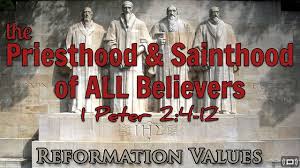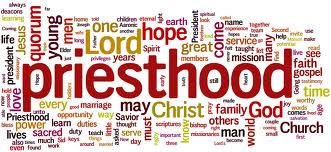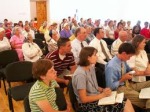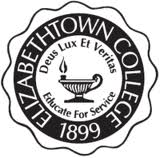 The Need For The Five-Fold In Small Groups, Cell Groups, Home Groups
The Need For The Five-Fold In Small Groups, Cell Groups, Home Groups
Pastor Cho discovered the necessity of small groups in his church in Korea that became the backbone of establishing the largest in the world. The reason is that in small settings, interactive relationships are established forcing one to make the Logos, the written Word, a Rhema, or living Word. One has to live out their faith when rubbing elbows with others in very practical day-to-day experiences.
Many small home cell groups have been tools for evangelistic expansion as they divide and multiply producing growth while cementing old relationships and establishing new ones, calling on talents of older experienced members, but living on the freshness and motivation of new ones. Many small home cell groups have stagnated, keeping the same participants and becoming cliquish. How can a group prevent this from happening? The answer lies in embracing the five fold in the midst of the group.
Every small group needs a member driven evangelistically, always winning the lost, bringing new members to the group. This newness brings vibrancy to the group, and propels it forward evangelistically. If the group is missing this link, stagnation can quickly set in.
Every group needs someone as a five fold teacher to walk out one’s faith scripturally but practically, not as a theologian, but through relationships in practical applications in one’s daily life, like Jesus did when walking and living with the twelve disciples. This way it does not become a religious exercise or class or course with only academic training, but practicality becomes its main principle.
The group needs someone prophetic to bring the practical reality of worship to the group, the challenge of allowing the supernatural to work amongst them, and to challenge each member individually and the group corporately to be drawn into the likeness of Jesus Christ. Someone apostolic, who sees the big picture of the corporate group, and naturally networks the talents of the group within itself to minister to one another in sacrificial love is also needed.
These are not formal offices, nor even positions, but passions within believers in the group that just motivate them to serve one another from their passions as well as receive from differing passions differ that augment them. These passions just surface when needed or all called upon to help mature the saints within the group, or call the corporate group to action as a body. If they all are “released” to flow in freedom and to also receive from the other diverse passions, a synergy is created strengthening the group to be more Christ-like individually and as a group. The Word becomes “life”.
If your small group is struggling, ask yourself, is there someone in the group that likes to “ignite” the group, the catalyst, one who “births” things, then release their “evangelistic” spirit and let they go, let them flow. If some nurtures, mother-hens the group, becomes spiritual parents to everyone, release them to “shepherd” their pastoral gifting. If some live to study the Word, the Bible, allow them to share their spiritual truths in practical ways to produce an “Emmaus Road” experience of walking out their faith with everyone. If some are prophetic in nature, release them to minister spiritual life, releasing supernatural faith in very natural situations. Finally if one is like the eagle of the group, soaring above situations, keenly observing with wisdom, always seeking to allow others in the group to minister, release them to release others through networking to bring the group together in purpose, direction, and unity.
If you release the five fold in your group in this way, you will have newness in life through the evangelistic, nurturing through shepherding, spiritual growth grounded on the Word, living faith, and proper over sight and coordination; the five fold. There will be balance in ministry, constant flowing of the Holy Spirit, and a freedom to “release” one another, yet draw from one another.
 As the group expands, mentoring new members in your passions, prepare them for their callings, as the group “equips the saints for the work of service” for the next spiritual generation of the group. There will be a time when the group realizes that it is time to “release” the once new, now “equipped” members to begin their new group, and the Church expands, grows.
As the group expands, mentoring new members in your passions, prepare them for their callings, as the group “equips the saints for the work of service” for the next spiritual generation of the group. There will be a time when the group realizes that it is time to “release” the once new, now “equipped” members to begin their new group, and the Church expands, grows.
The five fold is a very practical way to bring and keep life to your group and growth to your church.












































































